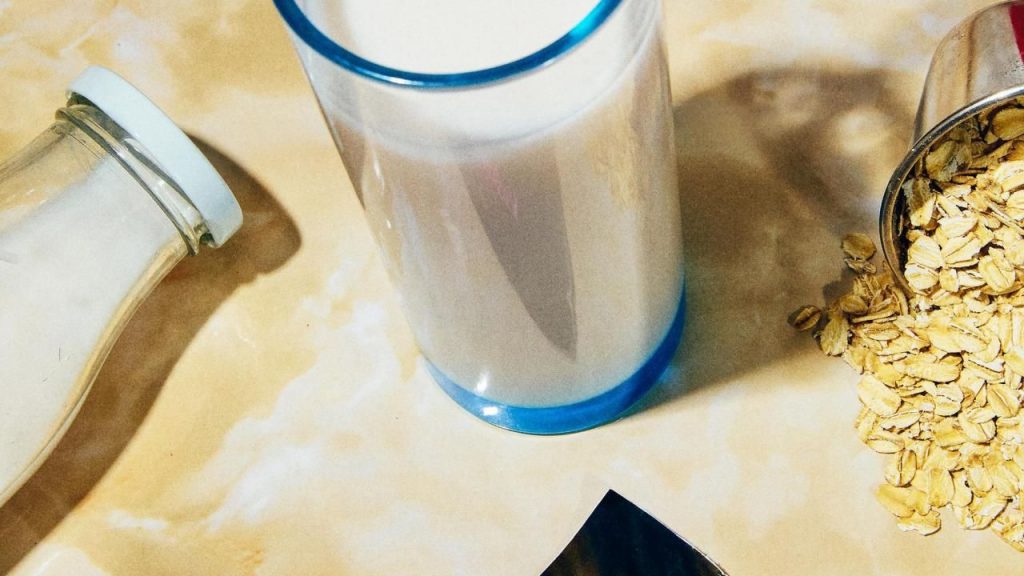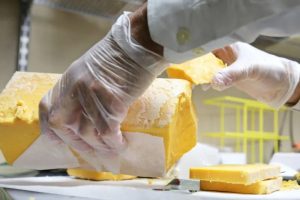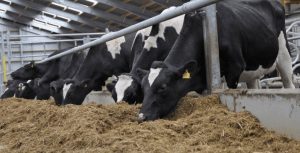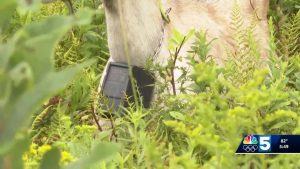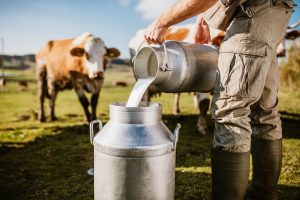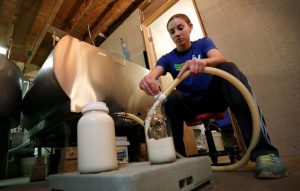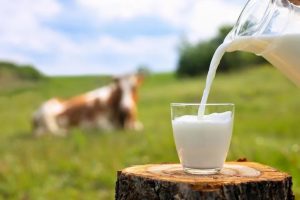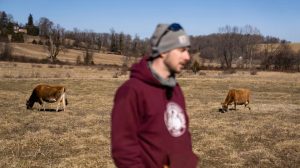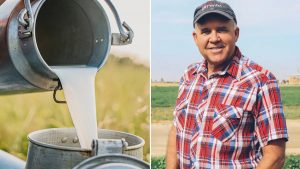
Instead of banning raw milk, a key agriculture bill now proposes studying the feasibility of making raw milk even more broadly available for people to buy. State agriculture officials have compared it to playing Russian Roulette with public health.
North Carolina lawmakers agreed Tuesday to reverse course and undo their plans to ban raw milk — a move that goes against public health warnings made by state agricultural leaders and others.
Just last week, the state Senate’s agriculture committee gave its approval to the annual Farm Act, including a provision to ban raw milk. That piece of the bill was requested by N.C. Agriculture Commissioner Steve Troxler. He said that alongside diseases like salmonella and E. coli that raw milk can spread, new research has shown raw milk also transmits bird flu.
In addition to posing a threat to North Carolina’s multibillion-dollar poultry industry, Troxler said, scientists also worry that bird flu will evolve to infect humans more easily if people keep putting it in their bodies, whether from raw milk or other sources.
State senators agreed with Troxler’s proposal originally. But on Tuesday, when more than 100 raw milk enthusiasts packed another committee hearing and spilled out into the hallways of the legislature, the lawmakers backed down and agreed to get rid of the proposal.
Tuesday’s amendment to the bill — by its lead sponsor Sen. Brent Jackson, R-Sampson — was an about-face. Instead of banning raw milk, the bill now proposes studying the feasibility of making raw milk even more broadly available for people to buy.
“This is trying to appease the thousands of emails I’ve had, text messages, phone calls,” Jackson said.
Troxler attended Tuesday’s meeting but didn’t speak. Last week, WRAL reported, he called for an end to the state’s partial legalization of raw milk — which can be sold if branded as pet food — and compared it to playing Russian Roulette with public health.
The boisterous crowd of dairy farmers and other raw milk supporters cheered and booed throughout much of Tuesday’s meeting, a breach in typical legislative decorum that was nevertheless allowed by Sen. Warren Daniel, R-Burke, chair of Tuesday’s Senate Judiciary Committee.
At one point during the raucous meeting, Daniel joked that he thought he heard mooing, as the crowd booed a separate amendment to the bill that would limit raw milk sales for the time being to herd-sharing groups — essentially, people who band together to each buy partial ownership in a cow to be entitled to a portion of its milk.
Bipartisan support
The crowd spanned the political spectrum. Michele Morrow, a hardline conservative who ran an unsuccessful 2024 campaign to lead the Department of Public Instruction, was among the speakers Tuesday backing raw milk. And on the committee itself, one of the legislature’s most liberal members, Sen. Sophia Chitlik, D-Durham, also praised Jackson for listening to raw milk fans like her.
Chitlik previously worked for former President Barack Obama. Morrow has called for Obama to be publicly executed. But they agree on at least one thing: Giving people more options to buy raw milk.
“I myself joined a herd-share when my son was a year old,” said Chitlik, who supports the status quo that allows people to buy raw milk under a pet food branding. It’s widely known that people are buying it for their own personal use, not for their pets, but the state has allowed it to happen — at least until now, when the new Farm Act has threatened to shake things up.
“We regulate and sell things like raw oysters, tobacco, alcohol, which are far more dangerous than raw milk,” Chitlik said.
Added Morrow: “The number-one job of anybody that is an elected official is to protect the God-given, inalienable rights of every citizen here in this state and in this country. And I think one of the most basic rights is the determination of what we’re going to put into our body, what we’re going to offer our children to eat.”
Not everyone who spoke Tuesday was pleased with the legislature’s reversal. Doug Holland, the president of the North Carolina Dairy Producers Association, questioned why anyone would willingly ingest dairy that hasn’t been pasteurized to clean it of potential diseases, including bird flu, also known as H5N1.
“Why?” Holland asked the raw milk supporters rhetorically. “It has been proven — science has proven, folks — that raw milk can contain many pathogens. E. coli, salmonella, listeria, and now we have the H5N1. All of these things are detrimental to humans.”
Pesticide lawsuits targeted
The raw milk provision of the Farm Act wasn’t the only piece of the bill attracting heated debate Tuesday.
Several lawmakers and speakers also honed in on a separate part of the bill that would make it significantly harder for people to sue pesticide companies for harming their health. It comes after Bayer paid more than $10 billion in 2020 to settle lawsuits from tens of thousands of people who said they got cancer from using Roundup, a common herbicide. Bayer is also a major pesticide producer.
North Carolina lawmakers have already passed laws to severely limit people’s ability to win damages in pollution lawsuits against hog farms, as part of previous Farm Act bills written by Jackson and other farmers in the legislature. On Tuesday, Jackson said similar laws protecting pesticide companies against being sued will help “ensure that our farmers have the products they need to feed and clothe us at a reasonable price.”
The U.S. Chamber of Commerce, a pro-business lobbying group, and the North Carolina Farm Bureau support that part of the bill. But several others spoke out against it Tuesday, including Chitlik. She said the Farm Act proposes protecting pesticide companies from lawsuits for the same reason it had originally proposed banning raw milk: To protect big businesses by curtailing the rights of regular people.
“They both put big business over personal freedom, and I think that that can be very dangerous,” Chitlik said, later adding: “I just have a very hard time believing that raw milk is a bigger threat to North Carolinians than harmful forever-chemicals.”
You can now read the most important #news on #eDairyNews #Whatsapp channels!!!
🇺🇸 eDairy News INGLÊS: https://whatsapp.com/channel/0029VaKsjzGDTkJyIN6hcP1K
